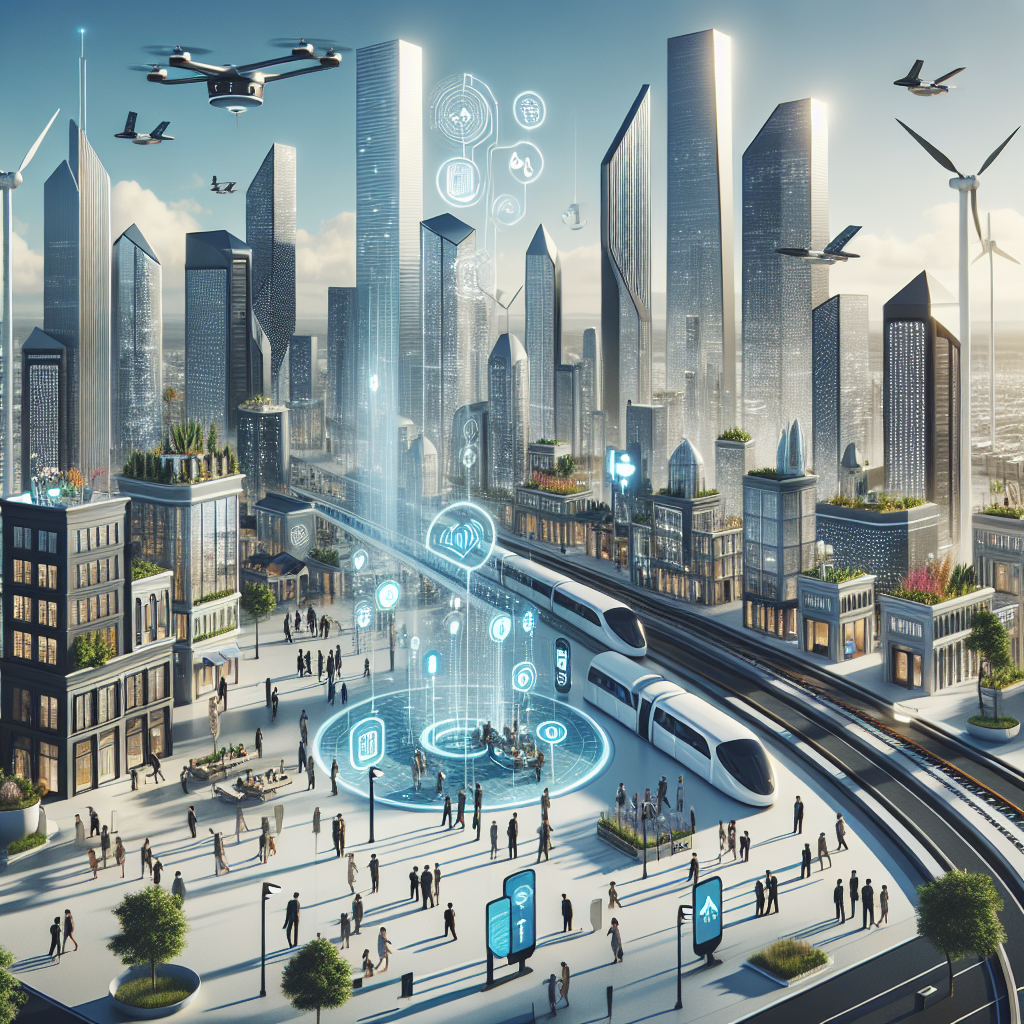As technology continues to advance at an unprecedented pace, the concept of smart cities has emerged as a revolutionary solution to the challenges of urbanization. With the integration of digital technology, data analytics, and sustainable infrastructure, smart cities are transforming the way we live, work, and interact with our urban environment. In this article, we will explore the rise of smart cities and how technology is shaping urban development in the 21st century.
What are Smart Cities?
Smart cities are urban environments that leverage technology and data to improve the quality of life for residents, enhance sustainability, and optimize city operations. These cities utilize interconnected devices, sensors, and intelligent infrastructure to gather real-time data and insights, which are then used to make informed decisions and improve efficiency across various sectors, including transportation, energy, healthcare, and public safety.
The Role of Technology in Smart Cities
Technology plays a pivotal role in the development of smart cities, serving as the backbone of their infrastructure and services. From the deployment of IoT (Internet of Things) devices to the implementation of advanced data analytics and artificial intelligence, smart cities rely on a sophisticated network of digital solutions to address urban challenges and create sustainable, inclusive communities.
Benefits of Smart Cities
The rise of smart cities brings a myriad of benefits to urban residents and stakeholders. By leveraging technology, these cities can enhance public safety through real-time monitoring and predictive analytics, reduce traffic congestion and emissions through smart transportation systems, improve energy efficiency with smart grids and sustainable architecture, and provide better access to essential services such as healthcare and education.
Challenges and Considerations
While the potential of smart cities is vast, their development is not devoid of challenges. Privacy and data security concerns, digital equity and access, infrastructure investments, and the need for interoperable systems are just a few of the complex considerations that city planners and policymakers must navigate as they strive to create successful smart cities.
The Future of Urban Development
As the global population continues to urbanize, the rise of smart cities presents an exciting vision for the future of urban development. By harnessing the power of technology, data, and connectivity, cities have the potential to become more sustainable, resilient, and responsive to the needs of their inhabitants. The integration of smart city solutions will not only improve the quality of life for residents but also create new opportunities for economic growth and innovation.
Conclusion
In conclusion, the rise of smart cities represents a transformative shift in urban development, driven by the power of technology and innovation. By embracing digital solutions and data-driven decision-making, cities can address longstanding challenges and build thriving, connected communities for the future. As we look ahead, the evolution of smart cities will continue to shape the urban landscape and redefine the way we experience and interact with our cities.
Frequently Asked Questions
What are some examples of smart cities?
Several cities around the world are leading the charge in smart city development, including Singapore, Barcelona, Seoul, Amsterdam, and Dubai. These cities have implemented innovative technologies and policies to transform urban living and sustainability.
How do smart cities improve sustainability?
Smart cities enhance sustainability by optimizing energy consumption, reducing carbon emissions, promoting eco-friendly transportation, and leveraging data to inform urban planning and resource management decisions.
What are the privacy concerns associated with smart cities?
Privacy concerns in smart cities revolve around the collection and use of citizens’ data, as well as the potential for surveillance and cybersecurity threats. It is crucial for smart cities to establish robust privacy policies and security measures to protect the rights and information of their residents.
How can businesses benefit from smart city initiatives?
Businesses can benefit from smart city initiatives by tapping into new markets created by urban development, collaborating with city authorities to deliver innovative solutions, and utilizing data to improve operational efficiency and customer experiences within urban environments.
